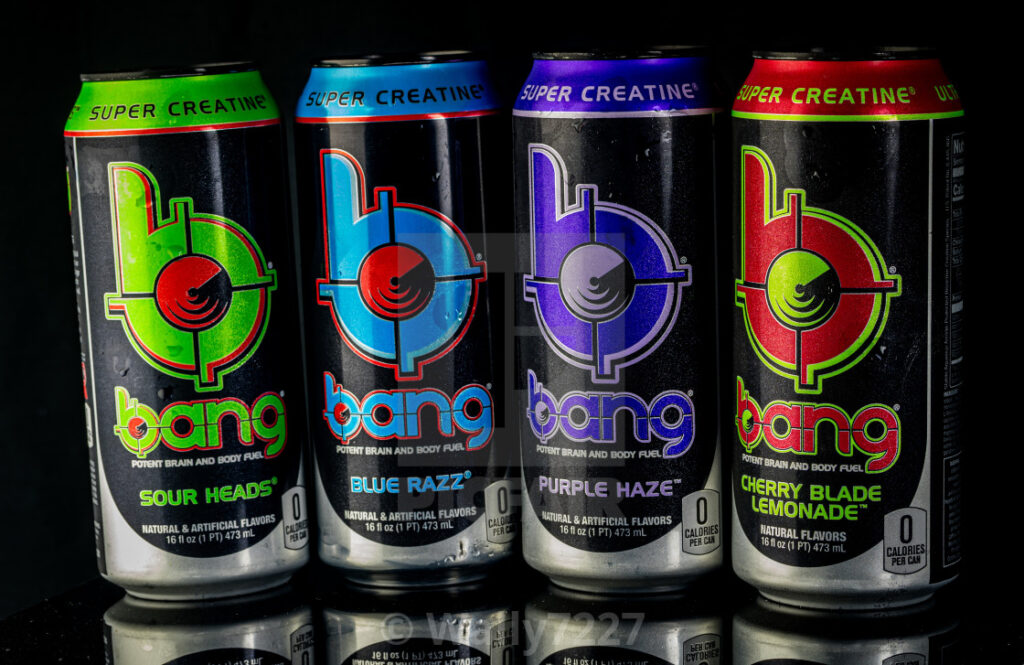In a twist of fate, Monster Energy may soon become both the savior and executioner of its competitor, Bang Energy. As reported by the Wall Street Journal, Monster Energy is poised to acquire its smaller rival for $362 million through a bankruptcy court agreement.
This transaction is pending approval from the bankruptcy court and the Federal Trade Commission (FTC), which is currently reviewing the potential sale; however, if given the green light, this deal could potentially be beneficial for both brands.
For Monster Energy, the deal presents the opportunity to acquire all of Bang Energy’s assets from its parent company, Vital Pharmaceuticals Inc. This follows a series of encounters that have weakened the energy drink brand’s position, including a false advertising lawsuit initiated by Monster Energy and their role as one of Bang Energy’s largest creditors during the bankruptcy proceedings.
Related: Beast Unleashed: Monster Energy’s Long-Awaited Alcoholic Beverage
On the other hand, if the agreement doesn’t go through, Bang Energy may face closure, as lawyers for the brand highlighted in a recent court hearing. This unfortunate situation could result in the loss of approximately 700 jobs, as reported by Bloomberg. In these circumstances, Bang Energy finds itself in a precarious situation, placing its hopes on the very competitor that contributed to its current predicament.
Rocky Relationship Between Bang Energy and Monster Energy
The relationship between Bang and Monster has been marked by heated competition ever since Bang entered the market in 2012, ten years after Monster’s establishment. Despite its relatively recent foundation, Bang quickly rose to the top of the energy drink industry, lagging just behind Monster Energy in sales by 2022. That year, Red Bull led the market with $6.8 billion in sales, closely followed by Monster with $4.9 billion and Bang earning a respectable $1.3 billion, according to Statista.
However, in September 2022, Bang suffered a significant setback when Monster filed a successful false advertising lawsuit against it. The lawsuit argued that Bang Energy deceived consumers about its ingredients and the health benefits of its drinks. One significant controversy centered around the “Super Creatine” label on Bang Energy drinks, which Monster argued was deceptive, given the drinks contained no actual creatine.
Monster’s lawsuit claimed that Bang’s success was largely due to this deceptive practice. Further, it contested Bang’s claims about its “Super Creatine” being “20 times more effective at reaching the brain than other creatine forms,” and its unfounded assertions that its drinks could “reverse mental retardation” and aid in treating Alzheimer’s and Parkinson’s diseases.
A jury ruled in Monster’s favor, holding that Bang Energy drinks did not contain any actual creatine. Consequently, Monster won a substantial $293 million in damages, including $18 million for Bang’s alleged interference with Monster’s retailer contracts and $3 million for supposed theft of trade secrets from Monster by ex-employees.
Moreover, Monster holds a substantial claim in Bang’s bankruptcy as one of its largest creditors. Monster also possesses co-rights to a five percent perpetual royalty/license for the Bang Energy trademark. This position complicates Bang Energy’s efforts to transfer the trademark to another buyer, further strengthening Monster’s influence over Bang, even without an outright purchase.
Despite its advantageous position, Monster has disclosed an asset acquisition deal with Vital Pharmaceuticals. Under this agreement, a subsidiary of Monster would purchase the majority of Bang’s assets for $362 million; however, Monster emphasized that while it remains optimistic about finalizing the transaction, it’s not guaranteed due to the need for bankruptcy court and FTC approval.












Join or login to leave a comment
JOIN LOGIN